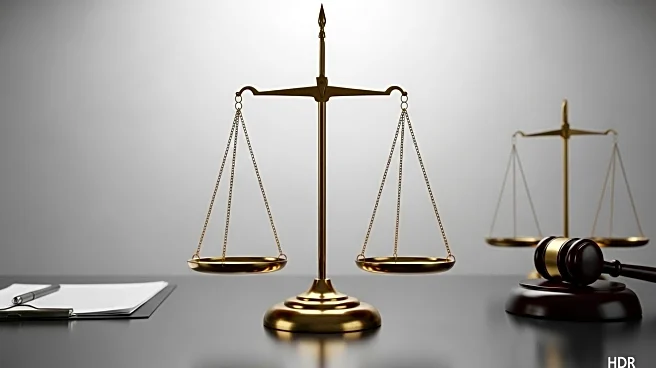What is the story about?
What's Happening?
Rosen Law Firm, a global investor rights law firm, is investigating potential securities claims on behalf of shareholders of National Grid plc. The investigation follows allegations that National Grid may have issued materially misleading business information to the investing public. This comes after a Reuters article reported that a fire at London's Heathrow airport in March was caused by the UK power grid's failure to maintain an electricity substation. The report, which prompted an energy watchdog probe, indicated that the issue causing the fire was identified seven years ago but remained unaddressed. Following this news, National Grid's American Depositary Shares fell by 5% on July 2, 2024.
Why It's Important?
The investigation by Rosen Law Firm is significant as it highlights potential accountability issues within National Grid plc, which could have broader implications for investor trust and corporate governance. If the allegations are proven, it could lead to substantial financial repercussions for National Grid, affecting its market value and investor confidence. The case underscores the importance of transparency and proper maintenance in critical infrastructure, which can have far-reaching consequences for public safety and economic stability. Investors who suffered losses may seek compensation, which could result in a significant class action settlement.
What's Next?
Investors who purchased National Grid securities are encouraged to join the prospective class action. Rosen Law Firm is preparing to seek recovery of investor losses through a contingency fee arrangement, meaning affected shareholders may be entitled to compensation without upfront costs. The firm advises investors to select experienced counsel with a proven track record in securities class actions. As the investigation progresses, further developments could arise, potentially influencing regulatory actions and corporate policies within National Grid.
Beyond the Headlines
The situation raises questions about the ethical responsibilities of corporations in maintaining infrastructure and the potential legal implications of failing to address known issues. It also highlights the role of regulatory bodies in ensuring compliance and safety standards are met, which is crucial for preventing similar incidents in the future. The case could lead to increased scrutiny on infrastructure management practices and influence policy changes aimed at enhancing accountability and transparency.















